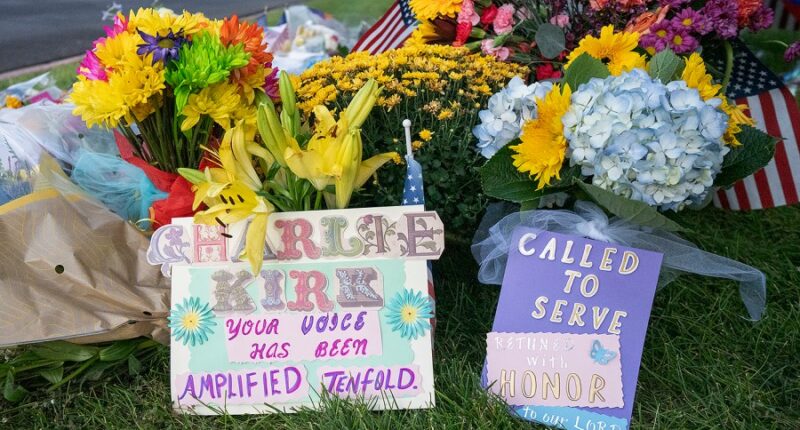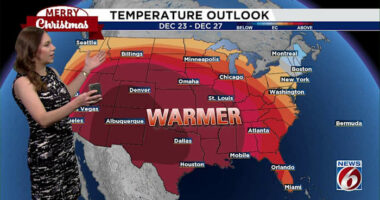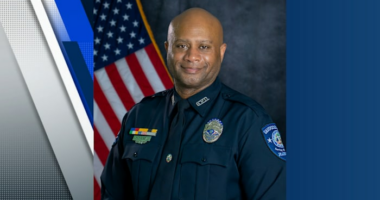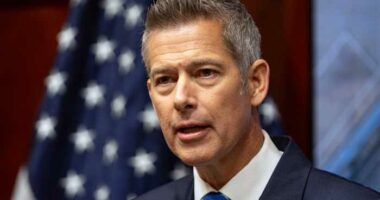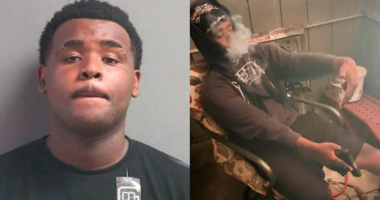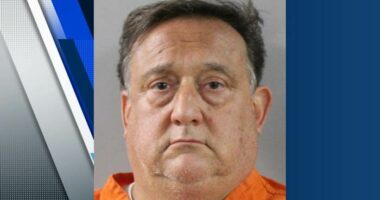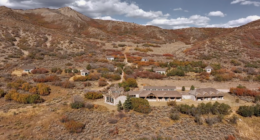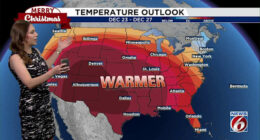Share this @internewscast.com

The assassination of Charlie Kirk has united the parties in a sense of dread that the country has arrived at a dangerous place.
How it got here, however, remains very much in dispute.
President Trump quickly attributed the death of Kirk, a well-known MAGA supporter, to the “radical left.” Several Republican members of Congress echoed this accusation.
Democrats highlighted Trump’s extensive record of endorsing political violence and criticized Republicans for assigning blame prior to understanding the shooter’s intentions. Some intensified their advocacy for stricter gun regulations, which are generally opposed by most Republicans.
Some lawmakers expressed sorrow over the nation’s drift away from religious values, while others blamed the harmful culture that thrives on social media.
Nevertheless, all parties appear to agree on a grim perspective that the U.S. is excessively divided, the discourse too acrimonious, and the incidents of violence too common. There is a recognition that something must be done to reduce partisan tensions and foster unity.
“We can do better,” stated Rep. Bennie Thompson (D-Miss.). “We can engage in debate without resorting to violence. And it’s crucial to acknowledge that people are watching and listening. For some individuals, it doesn’t take much to drive them to the brink.”
On Friday, authorities from Utah and Washington announced the arrest of Tyler Robinson, a 22-year-old from Utah, for the shooting which took place as Kirk, 31, was speaking at a rally at Utah Valley University. However, the arrest has only fueled ongoing narratives about the origins of political violence. Conflicting — and at times inaccurate — information about the suspect’s potential motives has emerged in the media, perpetuating the blame game that began prior to his apprehension.
Kirk’s tragic end has sparked new calls on Capitol Hill for a boost in security for every sitting lawmaker — an idea that quickly attracted bipartisan support in both chambers. The tougher challenge facing leaders in both parties, however, won’t be legislative. It will be in locating ways to defuse the partisan tensions that have lingered since the Jan. 6, 2021, attack on the Capitol by Trump supporters and gained new energy following Kirk’s assassination.
“I’m always about turning down the temperature and encouraging members to walk in the dignity of their office and treat one another with dignity and respect,” Speaker Mike Johnson (R-La.) said Thursday in the Capitol. “This is an important moment for leaders to say that.”
They have their work cut out.
On Wednesday evening, just hours after Kirk’s death and immediately after the chamber held a silent prayer, there was a shouting match on the House floor as members of each side blamed the other for the rise in political violence.
“You all caused this,” Rep. Anna Paulina Luna (R-Fla.) screamed across the aisle, where some Democrats countered with calls for gun reform.
The ugly episode drew howls from those lawmakers in both parties who are calling to tone down the hostilities and focus on legislating, not seeking attention on social media.
“It was disgusting,” said Rep. Jim Himes (D-Conn.). “You need to decide if you’re here to help govern the country and the tradition, … or whether you want to be clickbait. And if you want to be clickbait, you know, I hope your constituents see that and send you home.”
Trump is also challenging Johnson’s pleas for comity. Immediately following Kirk’s death, the president accused Democrats of fostering the environment that made Kirk a target, then amplified that message on Friday during a sit-down with “Fox and Friends.”
“Radicals on the right are radical because they don’t want to see crime,” Trump said. “Radicals on the left are the problem, and they are vicious and horrible and politically savvy. They want men in women’s sports, they want transgender for everyone, open borders — worst thing that happened to this country.”
Democrats have rejected those criticisms out of hand, pointing to the president’s long history of advocating violence — tacitly or explicitly — including his role in the Jan. 6 attack and his subsequent decision to pardon even the most violent participants of that rampage. Even some Republicans say Trump has fueled the political animus that can, at turns, lead to eruptions of violence.
“Populists thrive on dividing. All populists do that. And he’s sort of an arch-typical populist,” said Rep. Don Bacon (R-Neb.). “There’s always going to be the bright, shiny object that you hate and attack.”
Bacon is among the lawmakers who singled out another societal trend they say is driving the violence: A national turning away from religion.
“I’m a spiritual guy,” he said. “And if [people] feel hopeless or they get depressed, they take bad, drastic actions. Increasingly, we don’t even know there’s a god, or a way to love, or that there’s a hope and purpose in life. So that’s ultimately the problem.”
Democrats pointed to another factor they maintain has fueled political violence in America: Easy access to firearms, and the opposition from most Republicans to stricter gun laws.
“Are we going to do something, or are we going to argue over rhetoric? That is my question about this,” Rep. Alexandria Ocasio-Cortez (D-N.Y.) said after the Kirk shooting. “We have to pass gun safety legislation and stop this.”
Second Amendment proponents have been quick to point out that the weapon allegedly used to kill Kirk, a .30-06 caliber bolt-action rifle, is among the most common hunting rifles in the country, making it unlikely that any new gun law would have prevented Wednesday’s tragedy.
Utah Gov. Spencer Cox (R) offered a drastically different prescription for the country: He blamed social media for contributing to the polarization, radicalization and social disengagement that can lead to bursts of violence.
“Social media is a cancer on our society right now,” Cox said Friday, as he announced Robinson’s arrest. “I would encourage people to log off, turn off, touch grass, hug a family member, go out and do good in your community.”
